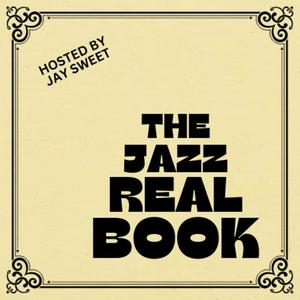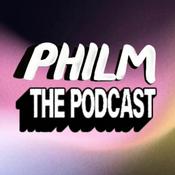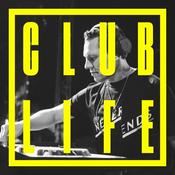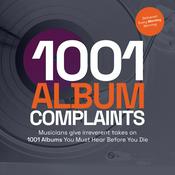151 episodes
- “ Falling Grace” and John Scofield (112)
“Falling Grace,” composed by Steve Swallow and first recorded by Gary Burton in 1966, is a structurally modern jazz standard built on lyrical melody and elegant, bass-directed harmony. Its unusual 14-bar A and 10-bar B form is unified by sustained opening tones, recurring triplet figures, and carefully balanced chord tones and extensions. The harmony is defined by half-step bass motion, slash chords placing 3rds and 7ths in the bass, and fluid cycle-of-fourths movement, giving the tune a floating yet logical quality. John Scofield brings a unique authority to the piece. Born in 1951 and educated at Berklee, Scofield emerged in the 1970s and gained international prominence during his tenure with Miles Davis (1982–85), where his blues-inflected tone and rhythmic bite helped shape Miles’s electric comeback era. Over five decades, Scofield has bridged post-bop, funk, fusion, and roots music, influencing generations of guitarists with his gritty sound, elastic phrasing, and harmonic daring. On Swallow Tales (2020), his interpretation honors the tune’s lyricism while highlighting his gift for motivic development and deep harmonic awareness, reaffirming his lasting impact on modern jazz guitar.
Gary Burton
John Scofield
The Jazz RealBook Playlist Vol.2 - Thelonious Monk -Underground
Released May 1968
Released in May 1968 on Columbia Records and produced by Teo Macero, Underground captures Monk with his longtime quartet: Charlie Rouse (tenor saxophone), Larry Gales (bass), and Ben Riley (drums), plus a vocal cameo from Jon Hendricks on “In Walked Bud.” The record balances new compositions like “Green Chimneys” and “Boo Boo’s Birthday” with revisited Monk staples, all delivered with the group’s seasoned interplay and elastic swing.
Though jazz was competing with rock’s cultural dominance, Monk remained uncompromising—angular melodies, dissonant harmonies, abrupt silences, and percussive attack intact. The Grammy-winning cover, depicting Monk as a member of the French Resistance, symbolized both defiance and individuality. Artistically rather than commercially driven, Underground closes a defining chapter in Monk’s Columbia era and reaffirms his singular place in modern jazz. (S5-Ep7) - Björn Meyer is a Swedish six-string bassist and composer born in Stockholm in 1965, known for his expansive approach to the electric bass across jazz, ambient, and world music contexts. After early studies in piano and trumpet—and even playing guitar in punk bands—he turned to bass at 18, becoming a professional musician in 1989 before relocating to Switzerland in 1996. Meyer has collaborated widely, including long associations with Anouar Brahem and Nik Bärtsch’s RONIN, and released his acclaimed ECM solo debut Provenance in 2017. His 2026 ECM release Convergence continues his sonic exploration, captured through meticulous, detail-oriented recording. The album showcases his richly resonant six-string bass, subtle electronics, and spacious production aesthetic, highlighting remarkable clarity, depth, and tonal nuance.
Björn Meyer- Convergence - “Fall” and Miles Davis’ Nefertiti ( 111)
Standards Rating 4, Difficulty Rating 6
“Fall,” written by Wayne Shorter, is a 16-bar composition featured on Nefertiti (1968) by Miles Davis. The melody is marked by its openness and its emphasis on upper extensions—13ths, 11ths, and altered tones—rather than simple chord tones, creating an atmosphere of suspended harmony and emotional ambiguity. The mirrored structure of the opening phrases reinforces this sense of balance and design. Performed by the Miles Davis Second Great Quintet—Shorter, Davis, Herbie Hancock, Ron Carter, and Tony Williams—the track blurs the line between written material and improvisation. Time feels elastic, melodic fragments resurface beneath solos, and the collective interplay becomes the focal point. As Davis’s final fully acoustic studio statement, Nefertiti captures the quintet at peak intuition, redefining small-group jazz through restraint and subtle structural innovation.
Miles Davis
Kurt Rosenwinkel
The Jazz Real Book Playlist Vol. 2 - “E.S.P.” and Miles Davis’ Second Great Quintet (110)
Standards Rating 5, Difficulty Rating 7
“E.S.P.” stands as a defining statement of Miles Davis’ Second Great Quintet, featuring Wayne Shorter, Herbie Hancock, Ron Carter, and Tony Williams. Written by Shorter, the tune captures the group’s concept of “time, no changes,” where pulse remains steady but harmony feels fluid and constantly shifting. Its 16-bar A and A’ sections, filled with syncopation and chord tensions (#11s, 9ths, altered dominants), create ambiguity rather than predictable resolution. The half-step root motion and unresolved cadences reflect the band’s conversational style—each member shaping form in real time. Williams’ elastic drumming and Hancock’s harmonically suggestive comping free the soloists from strict harmonic boundaries. On the original 1965 recording, the quintet achieves remarkable cohesion, balancing structure and risk. “E.S.P.” exemplifies how this ensemble reshaped post-bop into a more interactive, modern language.
Miles Davis
Joey DeFrancesco
The Jazz Real Book Playlist Vol. 2
More Music podcasts
Trending Music podcasts
About The Jazz Real Book
In this podcast, Jazz History professor, biographer, musician, and popular podcaster Jay Sweet will help guide you through the tunes included in the Jazz Real Book. For decades, this book (often called "The Jazz Bible") has been a resource for jazz musicians looking to learn jazz standards and repertoire. This podcast will discuss essential recordings and details associated with the songs in the Jazz Real Book, the musicians who created the material, and the recordings that inspire jazz musicians and fans worldwide.
Podcast websiteListen to The Jazz Real Book, The Joe Budden Podcast and many other podcasts from around the world with the radio.net app

Get the free radio.net app
- Stations and podcasts to bookmark
- Stream via Wi-Fi or Bluetooth
- Supports Carplay & Android Auto
- Many other app features
Get the free radio.net app
- Stations and podcasts to bookmark
- Stream via Wi-Fi or Bluetooth
- Supports Carplay & Android Auto
- Many other app features


The Jazz Real Book
Scan code,
download the app,
start listening.
download the app,
start listening.









































